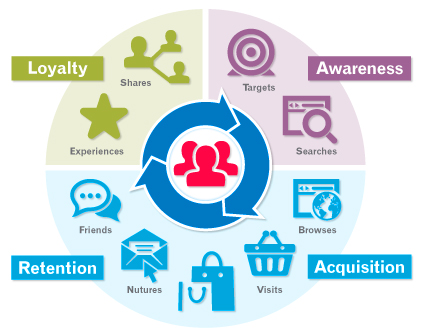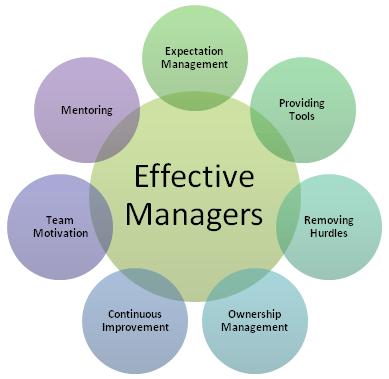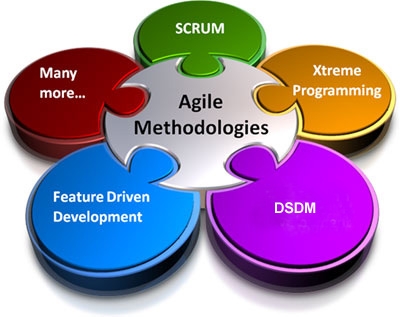How Strong is the connection between Democracy and Economic Wealth
The last two decades witnessed the collapse of communism both as an ideology and political system leading to the triumph of liberal democracy across the world. This process has exerted profound influence on redefining the architecture of the global economic and political system (Huntington 1991). As a result, the economic and political landscape of the contemporary world is characterized by democratic revivalism and formation of new states based on democratic ideals. This process has indeed deconstructed the prevailing notions of democracy and economic wealth. Traditionally, it has been argued by political and economic theorist that democracy will thrive only in a society, which enjoys a particular level of economic wealth and prosperity. However, emergence of new democratic nation states in Asia, Latin America and Africa soon after the fall of colonialism and the recent resurgence of democracy in Eastern Europe after the collapse communism inspired some scholars to perceive that economic wealth is not a pre-requisite for democracy. The newly democratic countries remained economically poor and still continue the path of democracy without higher economic growth and wealth. At the same time, there are authoritarian regimes in Middle East and South Asia that reflect high level of economic wealth even without democratic system. There are countries like the USA and UK which present the beautiful blend of economic wealth and democracy. Due to this paradoxical situation across the globe, economics theorists and scholars often find it difficult to reach a consensus regarding the relationship between democracy and economic wealth.
Given the scenario, this paper is a modest attempt to explore the relationship between democracy and economic wealth. The paper examines various theories and approaches that analyze the relationship between democracy and economic wealth and tries to explore how strong the connection is. The paper also examines the theories in the context of the contemporary economic and political order. Concluding section provides critical analysis of these approaches and highlights the need for a realistic and contextual perspective towards the relationship between economic wealth and democracy.
Democracy and Economic Wealth: Major Theories
Democracy, according to Schumpeter (1942) is ‘the institutional arrangement for arriving at political decisions in which individuals acquire the power to decide by means of a competitive struggle for the people’s vote’. Thus democracy implies a political system in which power derives its strength from the people. Robert Dahl (1971) provides seven fundamental attributes to democracy including:
- Control over governmental decisions about policy constitutionally vested in elected officials
- Relatively frequent, fair and free elections
- Universal adult suffrage
- The right to run for public office
- Freedom of expression
- Access to alternative sources of information that are not monopolized by either the government or any other single group
- Freedom of association (i.e. the right to form and join autonomous associations such as political parties, interest groups, etc).
Ever since the inception of democracy, its relationship with economic growth has been a serious issue of debate. Broadly speaking, there are three fundamental theories on the relationship between democracy and economic wealth. First of all, there is a prominent school of thought that highlights the positive correlation between democracy and economic growth. Secondly, there is an equally important view that negates this theory and emphasizes that democracy is not a pre-requisite for economic growth and often the relationship is negative in the case of many countries. Apart from these contrasting schools, there is another perspective that considers the relationship between democracy and economic wealth as sceptical. They argue that the relationship is neither positive nor negative and is largely depends on other factors as well. These contrasting yet very important arguments are examined below.
Martin Lipset (1969) is regarded as the pioneer of the approach that highlights a strong correlation between economic wealth and democracy. This perspective became popular during 1960’s and 1970’s. According to Lipset democracy will emerge and flourish only in affluent societies that are endowed with a high level of economic development and wealth. He further pointed out that economic wealth is an initial condition for democracy. Lipset stated, ‘the more well-to-do a nation, the greater the chances that it will sustain democracy. Only in a wealthy society in which relatively few citizens lived in real poverty could a situation exist in which the mass of the population could intelligently participate in politics and could develop the self-restraint necessary to avoid succumbing to the appeals of irresponsible demagogues’.
After the seminal theory of Lipset, there emerged many academic studies that empirically investigated the positive relationship between democracy and economic wealth. The proponents of this theory also held the view that democracy lead to greater economic prosperity. After Lipset, the most influential theory on the positive correlation between democracy and economic growth was presented by Adam Przeworski, Michael Alvarez, José Antonio Cheibub, and Fernando Limongi. On the basis of the empirical study conducted in 141 countries for the period 1950 to 1960, Przeworski reaffirmed the theory of Lipset and concluded that economically developed countries have more chances to sustain democracy. Also the theory pointed out that democracy can better promote economic wealth than authoritarian regimes.
Supporters of this positive correlation view argue that democracy provides a free and transparent political culture and equal allocation of resources among the people. This motivates citizens to invest and maximize benefit of the free market that ultimately lead to economic prosperity of the country. Democracy put restrictions on the power of the government, checks unnecessary expenditure and prevents unresponsive policies that affect economic wellbeing of the people. The theory further states that optimum utilization of resources will be possible only in a democracy that is accountable and transparent. Hence, democracy can best serve as a promoter of economic growth. Therefore these theorists highlight the strong positive co-relation between democracy and economic wealth. The successful and prosperous economies of the USA, UK and other developed countries of West Europe were considered as the models to substantiate the theory of positive co-relation between democracy and economic wealth. The wealthiest nations of the world are generally matured democracies. On the other hand world’s poorest nation states are autocratic regimes. Sudan, Burma North Korea and Congo are examples. Even though China shows an impressive growth rate after the globalization process, China’s GDP per capita is still $1000 making it one of the poor nations of the world (Sharma, 2012).
Nevertheless, this was questioned by many scholars who strongly criticized the positive relationship between these two concepts. Samuel P. Huntington (1968) and others were of the opinion that democracy has weak and unstable institutions that hinders investment and economic growth. Moreover, democratic countries tend to make vulnerable policies and decisions in order to attract popular support whereas authoritarian regimes are able to make strong policies to initiate economic growth. Economic growth needs hard policy framework that can check growth retarding business environment and factors. Such an iron hand is not possible within a democratic structure that focuses more on sentiments of the electorate than policy priorities. Thus democracy cannot play a catalytic role in wealth creation unless there is concrete effort from the government. Galenson (1959), Andreski (1968), Huntington and Dominguez (1975), Rao (1984-5), and Haggard (1990) etc popularized this view further. There are empirical evidence to show this negative correlation between democracy and economic wealth.
Singapore is a classic example to show the inverse relationship between democracy and economic wealth. When other countries in Asia heralded a democratic path following British colonialism, Singapore selected a unique single party authoritarian system that provided rich dividend to the country. When other Asian countries faced a chequered history of economic under development, political instability and social unrest, Singapore attempted a brave step towards liberalization, international trade and capitalistic growth strategy which ultimately made the country a ‘brand’ among other countries. Now Singapore serves as a regional headquarters for more than 3000 multinational companies and has world class financial and service sectors and above all a highly efficient physical infrastructure. The country consistently ranks high among ‘most attractive countries for international business’ and has achieved a per capita GDP level comparable to levels of developed western nations. According to the World Economic Forum’s Global Competitiveness Report 2006-2007, Singapore edged out Japan, Hong Kong and Taiwan to be the most competitive Asian country, while coming in fifth in world rankings. The world’s highest PC penetration among households, the well-networked broadband systems and the high-tech transport system- all symbolize Singapore’s economic achievements (Menon, 2008). All these achievements were made without a democratic government. Other East Asian countries like South Korea, Taiwan and Hong Kong also achieved high growth rate without democratic government (Dominguez (2005). China is another classical example to show that the relationship between democracy and economic growth is not as strong as envisaged. Within the boundaries of the totalitarian communist rule that hardly allow democratic space to community, China is able to leverage investment, economic growth and overall development (Dominguez 2005). At the same time, democratic countries in Asia and Africa including India, Ghana, Costa Rica, Nepal and Hungary still struggle to sustain an impressive economic growth and corruption free administration.

The positive co-relation between democracy and economic wealth is not yet visible in these countries (Dominguez (2005). Also, the emergence of democracy in these countries cannot be related to mature economic development as stated by Lipset. After the fall of communism, there was democratic resurgence in East Europe even though these countries were not economically affluent. Hence, there is no direct correlation between democracy and economic wealth. More specifically, democracy can thrive even without economic wealth and at the same time, economic growth can be achieved without democratic system. This theory perhaps argues that economic wealth is better achievable under authoritarian regime than democracy. Apart from East Asian countries, there are countries of Middle East including Saudi Arabia, Kuwait, Bahrain that reflect consistent economic growth but extremely authoritarian monarchic form of government (Dominguez (2005). Thus the theory highlights the strong negative relationship between democracy and economic wealth.
Another study conducted by Freedom House shows that ‘during 1991 and 2005, the countries that were economically free but politically repressed grew at 6.28% annually. Comparatively, the countries that were both economically and politically free grew at 2.62%. In other words, dictatorial regimes make better economic decisions for citizens than democratic ones’ (Sharma, 2012).
The third view on the debate argues that there is no consistent relationship between democracy and economic growth as assumed by scholars. Moreover, they assume that institutional structure and approach to governance are more important than the type of regimes per se. Wealth creation and prosperity are possible in both democracy and autocracy if there are proactive policies, good governance, corruption free administration and better management of economy. As stated by Bardhan (1993) ‘A sound leadership that will resolve collective action problems and be responsive to rapidly changing technical and market conditions is more essential for growth’. This view was supported by Bhagavati( 1995) as well. According to him, market will bring economic wealth both under authoritarianism and democracy. Nevertheless, the institutional structure should be able to make the’ right policy’ decision without compromise. Hence, this theory confirms that there is no correlation between democracy and economic wealth and the determining factor is the nature and content of the policy.
Hristos Doucouliagos and Mehmet Ulubasoglu(2005) studied the connection between democracy and economic growth in 70 selected countries through meta-analysis. They have derived the following conclusions:
- There is no accumulated evidence to show that democracy is detrimental to economic growth. The findings of the data combined clearly points to a zero direct effect on economic growth.
- Though there is no direct effect of democracy on economic growth, it has many significant indirect effects on wealth through various channels including human capital formation, economic freedom, transparency etc. Nevertheless, democracy leads to higher government expenditure and restricted international trade.
- Though the direct co-relation between democracy and economic wealth is not to be validated globally, there still exists strong regional variation on the larger impact of democracy on economic growth. The study shows that democracy has a direct impact on economic growth in Latin America where as the relationship is very low in Asia.
- Though the study could not establish the direct impact of democracy on economic wealth, there is positive co-relation between economic freedom and wealth creation.
There are other scholars who studied the indirect but important relationship between democracy and economic wealth. In his paper, Democracy, Governance, and Economic Performance: Theory and Evidence, Yi Feng (2003) established that democracy indeed can make a positive effect on economic wealth and development at least indirectly. The indirect effects implies policy certainty, political stability, the establishment and enforcement of rules that protect property rights, the promotion of education, the ability to promote private capital, and the reduction of inequality. All these indirect indicators engender increase in investment and thus pave the way for enhanced economic growth.
In a similar study, Gerring (2005) also perceive that the connection between democracy and economic wealth is relevant, though it is indirect. According to them, democracy creates four types of capital- human capital, social capital, political capital and physical capital – in a country. Economic growth can be achieved through the effective utilization of these channels.
Kurzman (2003) conducted a study on the relationship between democracy and economic growth using time series analysis and came out with varying findings as mentioned under:
- Democracy has a significant impact on investment and this will have positive effect on economic growth. Free market economy and economic reforms coupled with transparency would eventually lead to more investment contributing towards economic growth.
- Democracy increases government expenditure and this will have a negative impact on economic growth.
- Social unrest and mass movements are intense in democracies. This is negatively co related to economic growth.
He thus concludes that democratic relationship with economic growth is always complex and greatly depends on the domestic situation, political culture, quality of regime and pace of market reforms.
Critical Analysis
While analyzing the diverse arguments on democracy and economic wealth, we can assume that there is no generalized pattern of relationship. The strength of the relationship depends on other related factors like quality of democracy, historical legacy, committed leadership, lack of corruption etc. If these pre-condition are achieved, democracy will definitely lead to economic wealth. At the same time autocratic government may lead to economic wealth but it will not be sustainable unless the government follows less repressive policies. When we examine the case of developed countries like the USA, Britain, France and Germany it is evident that democracy and economic growth exhibits a strong positive relationship in countries that have attained economic growth prior to democratization. The countries like India, Ghana and Pakistan selected democratic path even before attaining significant level of economic wealth. Hence, the approach that believes that ‘democracy will automatically follow economic wealth’ will not be sustainable whereas the theory that ‘economic growth will follow democracy’ may be more realistic.
Conclusion
Even though empirical studies conducted across the world proved the negative co-relation or zero- effect factor in democracy- wealth paradigm, it is a fact that authoritarian regimes have very low human development indicators unlike democratic countries. In the Middle East and China, economic wealth does not provide corresponding improvement in health, education and other social indicators. Economic growth impacts on human development through different channels like increase in per capita income, poverty reduction and higher public expenditure in education, health and related sectors.
However, while analyzing the success story of non-democratic countries with high economic growth, it is clear that, the desire for appropriate policies to reduce income inequalities and to allocate proportionately to the social sectors is sometimes lacking in these countries. Thus, the important question here is the utility of ‘wealth’ if it is not utilized effectively for the benefit of the people. The record of democratic countries is far better in this case. Amartya Sen (1999) expanded this aspect and focused on enhancing capabilities of the individual than increasing economic wealth. Authoritarian regimes may be good for creating wealth but the proliferation of wealth and equal distribution of resources requires a responsive government. In this context democracy has proved better result than autocratic systems.
Democracy and economic wealth indeed have a strong relationship even though the connection is not always positive. Democracy may lead to both positive and negative effect on economic wealth and prosperity. The real ‘connection’ largely relies on the institutional framework of democracy and its rational decision to initiate bold policies of economic development. Therefore, we can conclude that democracy is not a magic lamp that automatically provides economic wealth. Thus, the future prospects of democracy as a form of governance will depend on the effectiveness and capability to channelize these high spirit and vibrancy of democratic institutions for harnessing a growth strategy based on economic freedom, transparency, participation and accountability.
References
Almond G. A. and Verba, S. (1963) The Civic Culture: Political Attitudes and Democracy in Five Nations. Princeton, NJ: Princeton University Press.
Andreski, S. (1968) Military Organization and Society. Palo Alto: Stanford University Press.
Bardhan, P. (1993 ‘Democracy and Development: A Complex Relationship’. Berkeley, CA: University of California, Berkeley.
Bhagwati, J. (1995) Democracy and Development: new thinking on an old question. Indian Economic Review
Dahl, R. A. (1971) Polyarchy: Participation and Opposition. New Haven, CT: Yale University Press
Doucouliagos, C.(H.), (2005). Publication Bias in the Economic Freedom and Economic Growth Literature. Journal of Economic Surveys 19, 367-89.
Feng, Y. (2003) Democracy, Governance, and Economic Performance: Theory and Evidence. Cambridge, MA: The MIT Press
Galenson, W. (1959). Labor and Economic Development. New York: Wiley
Gerring, J and Rodrigo Alfaro. (2005) “Democracy and Human Development” (Paper presented at the annual meeting of the American Political Science Association, Washington, D.C., September.
Haggard, S. (1990) Pathways from the Periphery: The Politics of Growth in the Newly Industrializing Countries, Ithaca, New York: Cornell University Press
Huntington, S. (1968) Political Order in Changing Societies. New Haven, CT: Yale University Press.
Huntington, S. (1991) The Third Wave: Democratization in the Late Twentieth Century. Norman, OK: University of Oklahoma Press
Kurzman, C., R. Werum and R. E. Burkhart.(2003) Democracy’s Effect on Economic Growth: A Pooled Time-Series Analysis: 1951-1980, Studies in International Comparative Development.
Lipset, S. M. (1959) ‘Some Social Requisites of Democracy, Economic Development and Political Legitimacy’. American Political Science Review 53(1):69-105.
Lipset, S. M. (1994) ”The Social Requisites of Democracy Revisited” American Sociological Review, vol. 59 (1): 1-22
Menon, S. (2008) Singapore Economy: The way Ahead, IUP Press, India.
Przeworski, A., M.E. Alvarez, J.A. Cheibub, and F. Limongi (2000) Democracy and Development: Political Institutions and Well-being in the World 1950-1990. Cambridge: Cambridge University Press.
Rao,V.(1984). Democracy and Economic Development. Studies in Comparative International Development, 39, 67-81.
Raudenbush, S. W. 1994. Random
Schumpeter, J. (1942) Capitalism, Socialism and Democracy. London: Harper Perennial
Sen, A. (1999b) Development as Freedom. Oxford: Oxford University Press
Sharma, Dhiraj. (2012) Democracy correlated with Economic Growth? The Economic Times, February, 28.




